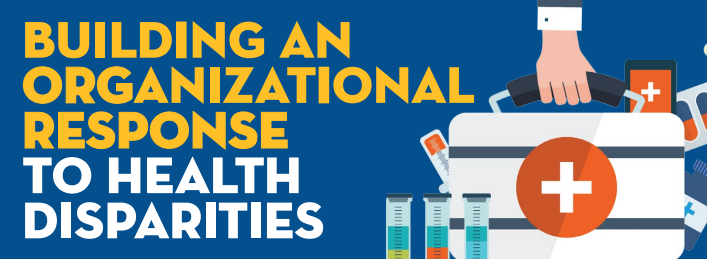Improving Health Care Access and Delivery for Everyone
January 17, 2017 · NCQA Communications
Improving health care access and delivery for everyone is a top priority for us at NCQA. And there’s a lot of work to be done, especially in the area of health care disparities. Often, inadequate access to health care and lower quality of care is common among those who need care the most: racial and ethnic minorities, people with limited English proficiency and low health literacy, sexual and gender minorities and people with disabilities.
National CLAS Standards
In 2000, the U.S. Department of Health and Human Services Office of Minority Health responded to the issue of health care disparity by releasing The National CLAS (“culturally and linguistically appropriate services”) Standards. They were re-released in 2013 as the Enhanced National CLAS Standards and guide health care organizations’ efforts to ensure health equity. They describe a framework for delivery of services that are culturally and linguistically appropriate and respectful, and that respond to patients’ cultural health beliefs, preferences and communication needs.
A Toolkit to Help Implement CLAS Standards
The Centers for Medicare & Medicaid Services (CMS) Office of Minority Health (OMH) contracted with NCQA to develop a toolkit to help organizations implement National CLAS Standards and improve health equity through better health care access and delivery. A Practical Guide to Implementing the National CLAS Standards: For Racial, Ethnic and Linguistic Minorities, People with Disabilities and Sexual and Gender Minorities gives health care organizations, including health plans, provider practices and hospitals, states and communities—including health plans, provider practices and hospitals, states and communities—guidance for applying the National CLAS Standards.
“Since 2010, CMS OMH and NCQA have worked to highlight the need to improve culturally and linguistically appropriate services and reduce health care disparities,” said Margaret O’Kane, president of NCQA. “We applaud the efforts of CMS OMH to offer practical, CLAS-related resources to health care providers.”
“Health disparities still pose significant challenges for individuals and the American health system, even as monumental shifts continue to show improved access and quality of care,” said Adam Swanson, Senior Prevention Specialist of the Suicide Prevention Resource Center and participant on the toolkit advisory panel. “[The] NCQA and CMS OMH new toolkit was built to empower health systems and leaders with dozens of vetted resources that can be used to inform and help implement new approaches aimed at achieving health equity with all communities and populations.”
This toolkit furthers NCQA’s work to reduce health care disparities and make quality health care accessible to all. Access the full toolkit here.









